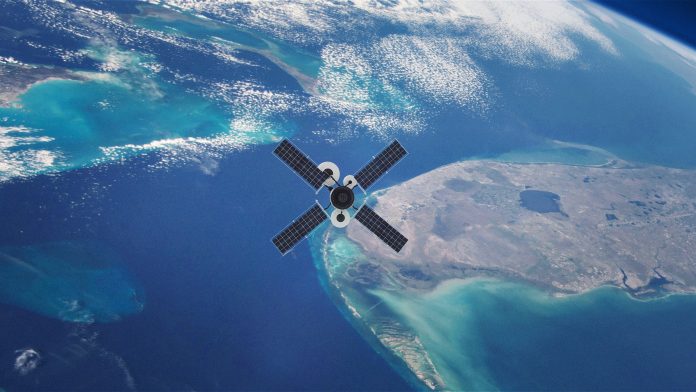Aalborg hosted Europe’s space debate at the 2025 Danish Space Conference this October, bringing together policymakers, researchers, entrepreneurs, and students to discuss the European Union’s growing ambitions in space, defence, and innovation
The Danish Space Conference was held at Musikkens Hus from 20 to 21 October under the Danish Presidency of the Council of the EU, the event highlighted how Europe is positioning itself as a significant space power and a leader in technological resilience.
Europe’s space future
Opening the Danish Space Conference , EU Commissioner for Defence and Space Andrius Kubilius outlined the European Commission’s growing agenda for space policy. A big part of this is the Vision for the European Space Economy, the upcoming EU Space Act, designed to create a single market for space services, and the proposed increase in funding for defence and space to €131 billion in the next multiannual budget.
The Commission plans to launch the European Space Shield next summer, integrating national capacities with EU flagship programmes such as Galileo, Copernicus, and IRIS². Milestones on the horizon include the start of GOVSATCOM operations before the end of the year and accelerated work on IRIS², Europe’s next-generation satellite communication system.
The EU is also advancing an Earth Observation Governmental Service for geo-intelligence, set to become operational from 2028, and exploring new positioning systems in low Earth orbit to complement Galileo.
European cooperation
A panel discussion featuring Danish and European leaders focused on strengthening Europe’s competitiveness through collaboration, innovation, and clear policy direction.
Speakers emphasised the need for a joined regulatory framework to replace fragmented national laws and create consistent “rules of the road” for satellite operations. They also stressed that Europe’s success depends on converting cutting-edge research into market-ready applications, backed by investment in skills and industrial capabilities.
Further dialogue between the European Commission, the European Space Agency (ESA), and the EU Agency for the Space Programme (EUSPA) highlighted how the three institutions are coordinating to ensure continuity, resilience, and innovation across Europe’s space infrastructure. Together, they are preparing for the evolution of Galileo, Copernicus, and the secure connectivity system IRIS², with a shared focus on reliability and long-term growth.
Inspiring the next generation
The EU Youth Policy Dialogue included over 100 university students. This discussion encouraged young Europeans to see space as a strategic and scientific frontier, where innovation and entrepreneurship can thrive.
Topics included the upcoming EU Space Act, opportunities for start-ups, and the importance of space security in a changing global environment. Students explored how Europe can remain competitive while encouraging creativity and reducing administrative barriers for new ventures.
The second day of the Danish Space Conference highlighted Europe’s growing “new space” economy. The EUSPA presented the CASSINI initiative, which supports start-ups through funding, competitions, and acceleration programmes. Danish companies alone have secured nearly €50 million through CASSINI, showing how regional innovation clusters like Space Connect North can link local creativity with European-scale opportunities.
Sessions on Earth Observation, AI, and secure connectivity showed how Copernicus data and EU research are advancing climate, defence, and digital applications. Alongside the discussions, an exhibition of the EU Space Programme displayed satellite models, interactive installations, and new imagery from Copernicus missions, giving visitors a close-up look at Europe’s expanding space capabilities.
The Aalborg Danish Space Conference shows how the EU is determined to turn space ambitions into action. From new legislation and significant investment to youth engagement and industrial cooperation, Europe is positioning space as a pillar of its economic strength and security.











